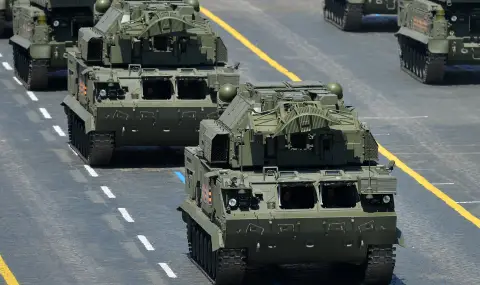"Over the last 900-plus days of the war, we have seen that Russia constantly makes fatal mistakes. But thanks to her resources, she has always been able to correct them so far. The present case is also like that. Russia was 100 percent focused on the Donbass and did not assume that Ukraine was still in a position to launch an offensive in Kursk. That's why this section of the front was left without special attention," noted military analyst Col. Markus Reisner to ARD.
The Ukrainians took advantage of the arrogance of the Russians
He also gives an answer to the question of why the mistakes of the Russian army are constantly repeated: “Many of us have no idea what it is like to take care of a front 1,200 km long – for both sides. For this purpose, huge resources are needed. But it often happens that small military units monitor a large area, and besides this, it naturally happens that certain territories remain unattended, including due to a certain arrogance. The arrogance of the Russians gave the Ukrainians the opportunity to make a breakthrough”.
Military analyst Markus Reisner told ARD that Ukraine's intention was to force the Russians to withdraw their units from the Donbas regions, where heavy fighting is taking place, and transfer them to Kursk. “Russia is trying to avoid this, as it is currently achieving success in Donbass. Therefore, she now wants to raise new forces from inside the country and direct them towards Kursk. That is why it takes time for these forces to activate."
Chances and Risks
Marcus Reisner made a prediction for ARD as to how long Ukraine would be able to maintain control over the conquered territories. “Ukraine is trying to expand its presence in the region, but it constantly encounters resistance. It tries to keep the conquered territories, as well as to seize new ones. The dilemma is that Ukraine is already on three fronts. It must provide soldiers, resources, weapons and equipment for both Donbas and the area around Kharkiv, and now also for Kursk. In this game of resources within a highly draining war, the question is whether Ukraine will show enough resilience."
The military expert points out that due to its huge population, Russia has the opportunity to constantly recruit new soldiers. “It is believed that by the end of the year, 690,000 Russian soldiers will be thrown into the fighting against Ukraine. However, it does not follow that there will not be a shortage of military personnel. It is assumed, for example, that Russia is losing 1,000 soldiers every day – killed or injured. Therefore, inexperienced conscripts are also included in the battles, who were literally swept away by the Ukrainians. Many of them are also captured – according to Ukrainian data, it is about 100 people a day.“
"Ukraine must remain flexible and mobile"
Reisner also says that Ukraine succeeds when it is flexible and mobile. “Ukraine's dilemma always begins when this effect is absent and the Russians manage to force it into a grueling positional war. This can happen now in Kursk.“
The expert explains to ARD that when the offensive ends and Ukraine has to defend some ill-prepared positions, the fist of the Russian army may fall on it again. “Ukraine must remain nimble and flexible to succeed. But Russia actually always prevails due to the availability of huge resources. We have been watching this for 900 days now. Regardless of the successes of the Ukrainian army, Russia constantly manages to regain its chances."
The lessons of the world wars
Doesn't it then turn out that the Kursk offensive was not a turning point, but rather a startling regularity in the course of the war, asks Suzanne Peterson from ARD. In response, Reisner draws a comparison with the First World War, where the framework conditions were different, but many parallels can also be found. “For example, the unfounded euphoria of 1914 that the war would be able to end quickly. After the failure of the Russian offensive of 2022, there were also similar hopes.
Marcus Reisner also makes a comparison with 1916 – “the year of the ill-fated offensives in which hundreds of thousands of people died, but it is also the year in which, as we know, the first attempts to start peace talks were made. After that, however, the war lasted for another two years. And today we know something else – The First World War was actually the basis for the much more terrible World War II, which began 21 years later, and eclipsed everything that happened during the First World War. This should definitely be a warning for us”, the military expert emphasized to ARD.
Author: Suzanne Peterson ARD
